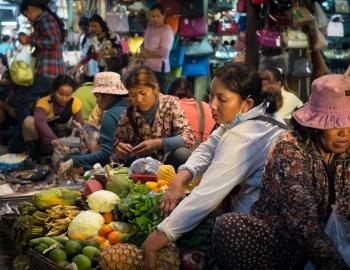Film : Adapting Rwanda - Growing Rwanda’s tea and coffee sectors in a changing climate
Film : Adapting Rwanda - Growing Rwanda’s tea and coffee sectors in a changing climate
Rwanda - the land of a thousand hills – is a small, densely populated, mountainous country at the heart of Africa. With a stable government and extensive development policies, the country is thriving. However, like many countries in Africa, it faces potentially large risks from climate change. What’s different in Rwanda is that the government is already developing progressive climate policies and investing in climate change adaptation.
Agriculture is a vital industry in Rwanda that employs 80% of the country’s population and provides for a third of its Gross Domestic Product (GDP) as well as a large percentage of its foreign income through exports. The sector is dominated by tea and coffee production.
By their very nature, tea and coffee crops are vulnerable to climate variability and change. They grow in subtropical to temperate, wet conditions, but the plants can be damaged by unseasonably heavy rains, or harmed by pests and diseases that spread in a changing climate.
The Government of Rwanda has been banking on a major expansion of the country’s tea and coffee-growing areas to drive future economic and social development. Does climate change put these plans at risk?
The answer is yes, but there are many wise steps that government and industry leaders can take to protect crops from current climate variability and manage climate-related risks in the future.
A new film ‘Adapting Rwanda: Growing Rwanda’s tea and coffee sectors in a changing climate’, by Hero productions and commissioned by CDKN and the Future Climate for Africa programme, documents some of the smart measures that farmers and estate managers can take to safeguard tea and coffee crops – and people’s livelihoods – in the short to medium term. The film presents a pragmatic approach to climate-proof tea and coffee sector plans from the early design stage, through implementation and project finance. The approach, developed by Paul Watkiss and the Tea and Coffee Climate Mainstreaming Project, in association with the Government of Rwanda, holds promise for Rwanda but also offers lessons to tea and coffee regions elsewhere in the world.
View the film below and please join us for the in-person and webcast event on 20 May to discuss Rwanda's economy in a changing climate.



